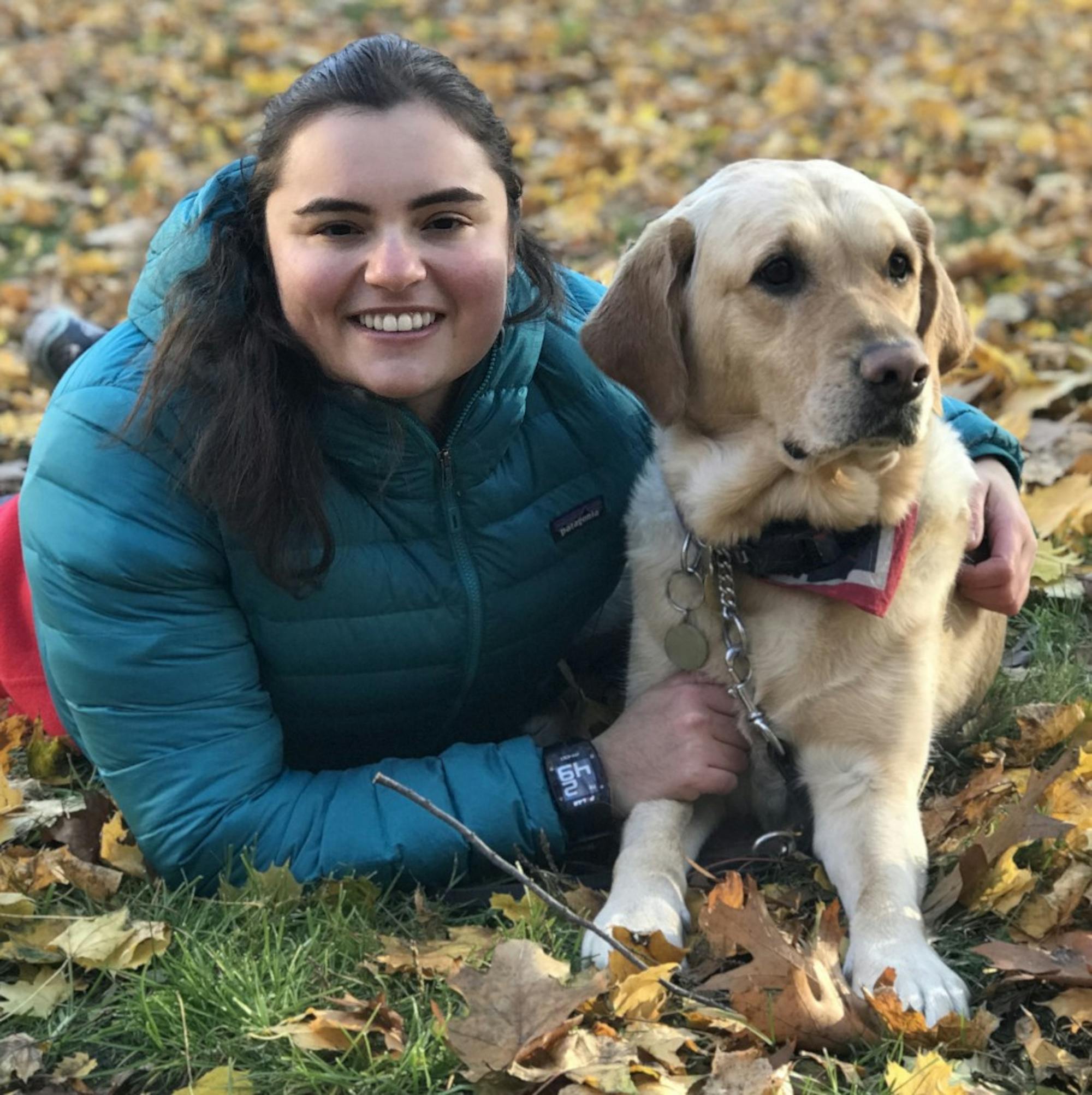Two-time Paralympic alpine skier Staci Mannella ’18, who is accustomed to overcoming challenges stemming from disability, has recently been a driving force behind Dartmouth’s policies toward students with disabilities.
Mannella, who suffers from a congenital vision impairment and is legally blind, and her family recently reached an out-of-court settlement with the College in a lawsuit originally filed against Dartmouth in April 2017. Mannella alleged in the lawsuit that the College failed to adequately provide the accommodations that she was entitled to under the Americans with Disabilities Act. Under the conditions of the settlement, the College has agreed to implement new policies and procedures that will address the needs of students with disabilities, including a mandatory training program for faculty and staff that will be known as “The Mannella Protocol.”
“I’m really excited about what we’ve agreed upon,” Mannella said. “I’m looking forward to seeing these changes made so that in the future, students with disabilities will have much better experiences than I did at this school.”
According to the lawsuit, Mannella alleges the College was ill-prepared for her arrival on campus. The lawsuit claims that Student Accessibility Services repeatedly failed to provide Mannella with the resources necessary for her to succeed in her coursework, such as note-takers, test readers and lab assistants. Moreover, many of her professors either failed to provide her with digitized course reading materials or failed to provide them in a timely manner. In one instance, Mannella was not given an answer key to a practice test in an accessible format until after the final examination for the class.
Several times throughout her years at Dartmouth, Mannella and her family reached out to the administration to notify it of Student Accessibility Services shortcomings, according to the lawsuit. When the College did not take action to rectify the situation, the Mannella family opted to take the matter to court.
Sarah Nunan, a paralegal who worked on Mannella’s case, noted that the lawsuit was modeled after other cases concerning ADA violations at universities around the country, such as at the University of Miami and the University of California, Berkeley. Nunan added that she was pleased with the outcome of the case, stating that the consent decree settled upon by both parties was “very complete.”
The decree stipulates that the College will conduct an external assessment of the accessibility of its facilities and resources and will develop a “corrective action plan” that addresses accommodations for students with disabilities based on the assessment’s findings. The results of the assessment and the finalized action plan will both be made available to the public.
According to College spokesperson Diana Lawrence, the College is currently in the process of hiring the external consultant to lead this initiative. Lawrence wrote in an email statement that the College has assembled a “Student Instructional Accessibility Working Group,” chaired by government and Latin American, Latino and Caribbean studies professor Lisa Baldez. The group will examine the accessibility services offered across all schools at Dartmouth, after which it will suggest policy improvements to the provost, according to Lawrence.
Additionally, the College will hire a new ADA coordinator, solidify the procedures for requesting and providing disability accommodations and create a new protocol for responding to the grievances of students with disabilities, according to the consent decree.
Nunan noted that the Mannella Protocol, which will require faculty and staff to receive training on how to properly accommodate students with disabilities, symbolized a particularly significant victory for Mannella.
“For [Mannella], it wasn’t just important for people to understand what [the] ADA is and what their responsibilities are under the law,” Nunan said. “It was very important that they understand what this means practically. If you have a student who’s blind or deaf, you should take the time to understand how that applies to you and your classroom.”
Lawrence agreed that the settlement marks an important development in the College administration.
“The College seeks to foster an environment that is seamlessly inclusive of people with disabilities,” Lawrence wrote. “Staci Mannella pointed out where we were falling short of that ideal, and for that we are grateful.”
Mannella said she hopes that as a result of her case, the College will make lasting changes to the way that it responds to the needs of students with disabilities.
“Part of the reason I fought so hard was so that people coming up after me won’t have to,” she said.
While Lawrence stated that a time frame for implementing the changes has not yet been finalized, Mannella said that she would like to see them occur as soon as possible.
“My expectation is to see massive changes before I graduate,” Mannella said. “I plan to stay involved even after I graduate, so I’m looking to see through that all of these policies are put in place in the very near future.”
Nunan emphasized that the greater Dartmouth community should stand behind Mannella in her endeavor to improve the College’s student accessibility services.
“I think what’s really important is that we don’t let [Mannella] do this on her own,” Nunan said. “Whether you’re a Dartmouth alumni, a current student or a community member, you should be joining [Mannella] and asking the Dartmouth administration not only to do this, but [also] to do it well. It’s 2019 — there’s no reason for Dartmouth not to get this right.”
Student Accessibility Services director Ward Newmeyer said he does not have more information about the Mannella Protocol beyond what had already been made public. Newmeyer declined to comment further.
Elizabeth Janowski '21 is the news executive editor of the 177th directorate. Hailing from Brookfield, Wisconsin, she is pursuing a double major in history and film and media studies.




